Website Writing Guidelines for Small Businesses
How operational is your website? Does your website regularly generate sales? Or is it useless as a chocolate fireguard? If your website cannot help you achieve your business goals, it may be because of the content on your website. Whether you call it “copy” (like ad copy) or “content,” the words that visitors see are business development tools and are critical to your website’s success.
The content you publish on your website is critical; in fact, those sites that are confusing and boring for website designers can bring big business to your business. On the other hand, a website that uses the latest technology and cutting edge graphics with beautiful web design will rarely generate business if the content is not written correctly on the webpage.
Your Page Title Should Be Relevant
Each page of your website must contain a perfect title. The page title can be the same or different from the main page title, depending on the software used to create the web page. However, the title of each page must concentrate on exact terms that the customer can find on the search engine. Except you or your company is so well known that other people are looking for you by name, page titles (and headings) that start with your name, or your company name cannot be. Therefore, for a consultant named John Brooks, the title of the first page should not be displayed as “John Brooks, consultant.” Instead, you should focus on your area of expertise, such as Environmental Impact Assessment – “John Brooks Associates.”
Turn Visitors into Customers Using Explanatory Headlines
When people visit a website, they generally try to find something special. This “something” can be a specific product they want to buy, a service they require, business information, a reservation they want to make, or information about a subject. If they can’t find what they are looking for, they visit another website. How fast is “fast”? Unluckily, in most cases, only for a few seconds. Therefore, the primary function of each page of your website is to inform visitors through the headline that they are at the right place or not. To do this, every page on your site must directly educate visitors on two things:
- What is here?
- What is useful to me?
As the imageries play a vital role when customer questions, “What is it?” Eventually, the answer comes from the written content on the page, which can help the reader stay on the page and continue what the reader wants. Most people skip the web pages before reading the detailed information so that the words that ordinary visitors see first can be displayed in the main title of the page without scrolling. If the image has captions, the captions can also be read during the first quick view of the page.
If those parts of the page say, “What is here?” And asking, “What’s useful to me?” Visitors will come back to read the details and get in touch with you or subscribe to the newsletter.
What should the title and captions say to keep readers interested? The answer is slightly different, depending on the page of your website that visitors visit. An excellent copy of the ad shows that headlines should be conversion-oriented and attract potential customers who want to contact you. On the internet, the first thing people do is find what they want.
Role of a Headline on Your Homepage
The main title of the home page should classify the product you are selling and the focus of the website. You must also indicate the Customer or Type of Customer providing the service. For example, if your site promotes event planning, the main title should be to let people know that you are planning an event and what type of event you are planning. Can your “big event” service help consumers plan weddings or celebrations for unique destinations within their budget? Do you want your customers to work in inexpensive style locations, or does the company work as a team in a meeting place? Titles should inform them.
If you are an experienced ad copywriter, the best places to highlight other interests that make you stand out from the competition are headlines, subtitles, and lists that readers can see on your page. The main titles and subtitles of the homepage and most other pages on the site should be in the interests of customers, not yours. Headings like “About Us,” “Welcome,” and “Mission Statement” should not be the focus of your homepage. Your mission statement can talk about customers, not the visitors on the website. Therefore, it does not fit to your homepage, and may not even be appropriate to your website.
You must have a website about us page, but it should not be your home page. In its place, add a navigation link to another “About Us” page so that anyone can read the information. If you also need welcome information, create a separate link. The term “welcome” is intriguing, does not convey information about the nature of the company or how we help visitors, and is not mentioned in the headline of the homepage.
Service or Product Pages
Your website product page or a page that promotes service, its first headline must be the content that the user writes on the search engine to find the products you sell. For example, assume you sell tires to tire shops, and some of the products you sell are off-road tires for SUVs. The main headings on the page are “SUVs Tires” and “Tires for SUV.” This page must contain text, a photo of each tire you sell, and the correct name of the product in the title below.
The images of each product can show a page with the title of a specific product name (like Off-Road Tire for SUV) and can include the benefits of each product listed. Price and action clauses (add to cart or buy now) can help customers decide to make a purchase and then be decisive and make a purchase.
Body Text
What about the text under the title and captions? Here you can use the text to help create a desire for the products you sell. (For example: (“Give a fresh look to your vehicle with our detailing services”). The copy should focus on what they want and want to communicate, not yourself. Customers don’t care what you are proud of, what interests them, and is pleased and happy after your purchase.
If the applause believes they can help you make a decision, post it on the “About Us” page. Introductory text can be used as a copy of the text or can be highlighted, but it does not load a home page or product page. One or two excellent but concise testimonials will work. If you still have it, add a link to the recommendation (Customer Review) page.
CTA (Call to Action)
Headlines, subheads, photos, captions, body text, and bullet points should include all direct visitors to the actions that users take after looking at the page. Reliant on your company and website, they can watch demos, subscribe to mailing lists, and subscribe to free consultations or call you. Regardless of the action, the user’s next step is highlighted and can be easily found without scrolling through many pages. A simple color image “Buy now” or “Call now,” including your phone number written on it, works very well.
Your Contact Information
The phone number must be highlighted on each page of the website. If you sell products or services, place them in at least two places on each page. The first location is in a prominent place, such as in the center of the page, in a header that indicates user interaction, or in a column on the left or right side of the page. The second point is at the bottom of the page. Your phone numbers must use easy-to-read fonts. Many people use smartphones to access the internet, so it is advantageous for programmers to set phone numbers so that people using cell phones can click on it to call you.
Another information that you should easily find on every page of your website is your address and opening hours. You should quickly find the address and name of the service area on your site if your business is local. If you run a family business and don’t want to show your home address, consider buying a mailbox. Use virtual office service to receive and forward your inbox, or use your city and state together with phone number. If you do business in the country or abroad, we recommend that you add your address to the website, as this will help to increase your credibility.
By ensuring that all pages on your site can tell visitors what they want to know and make it easier for them to find how they can get in touch with you, the following possible steps that a customer will take will significantly improve your site’s search results.



















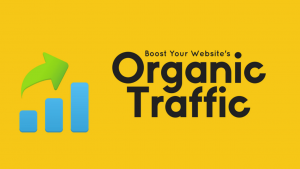
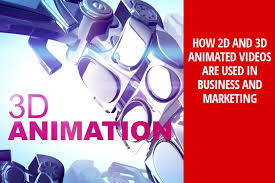


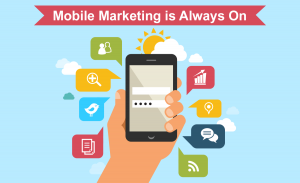
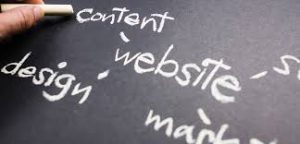


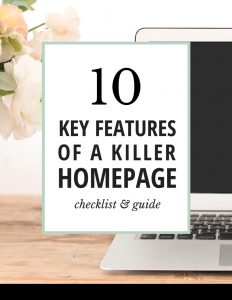

No comments